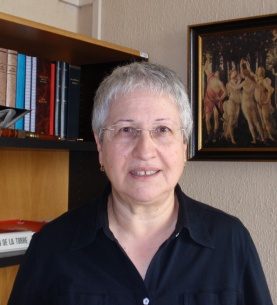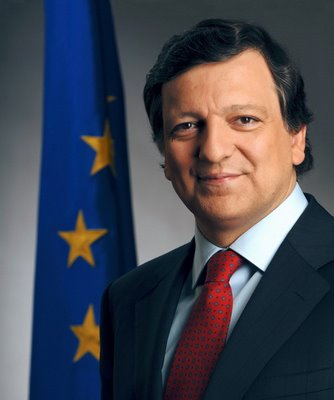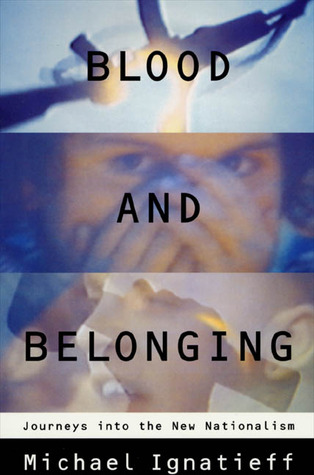Entrevistas a MEPs: Izaskun Bilbao Barandica, PNV
Izaskun Bilbao es una Europarlamentaria del PNV, partido miembro de la Alianza de los Liberales y Demócratas por Europa. En la siguiente entrevista nos cuenta su visión acerca del presente y futuro europeos.

-¿Puede contarnos algo sobre su background? ¿Qué estudios realizó?
Soy licenciada en derecho por la Universidad de Deusto y MBA en gestión de empresas por la UPV. Profesionalmente soy secretario interventor municipal de habilitación nacional. Aquí puedes acceder a un curriculum algo más completo. Y aquí a mis fichas de parlamentaria tanto en el Parlamento Europeo como en el Parlamento Vasco.
-¿Cómo llegó a convertirse en Eurodiputada? ¿Era un objetivo marcado en su carrera política?
Hablando de decadencias
El mundo vive una época de tensión constante. Cada día nos llegan noticias, desde cualquier parte del planeta, sobre un sinfín de acontecimientos de mayor o menor magnitud. Conflictos sociales, violencia ligada a movimientos religiosos, catástrofes naturales, etcétera, llenan los periódicos y los telediarios, transmitiéndonos tal cantidad de datos que, para cuando los hemos logrado comprender, ya han dejado de ser importantes, ya no “venden”. En los últimos años hay un tema que, no obstante, no deja de aparecer en los titulares: la crisis económica. Un problema presente en la práctica mayoría de los países del mundo, pero que tiene en la Unión Europea una presencia quizá más fuerte. Se trata de un periodo, en cierto modo, de decadencia. El sistema imperante en la actualidad, el capitalismo, demuestra la fragilidad de su estructura. Una estructura que se tambalea, sin que haya un único factor que lo provoque. Pocas veces los hechos ocurren por un único motivo. Eso es algo que nos enseña la Historia, nuestro pasado. Y hablando de pasado… ¿se podrían trazar similitudes entre la situación actual y otras anteriores? En la Edad Antigua, periodo histórico en que me especializo, hay precisamente dos etapas que marcaron un antes y un después en el desarrollo histórico de esas regiones: el ocaso micénico y la caída de Roma.
Entrevistas a MEPs: Francisco Sosa Wagner, UPyD
Francisco Sosa Wagner es diputado en el Parlamento Europeo desde el inicio de la séptima legislatura, lo que le mantendrá en el desempeño de sus funciones hasta julio de 2014.
El Parlamento Europeo es la institución de la Unión que representa directamente a los ciudadanos europeos, razón por la cual el diputado trata de representar y trasladar sus inquietudes y preocupaciones de la forma más eficiente posible.
Muchas son las propuestas, cuestiones y asuntos que han ocupado la agenda del diputado desde 2009, siendo el fomento de la transparencia y la democracia uno de los pilares fundamentales del compromiso de las instituciones europeas con los ciudadanos.
Entrevista a Rosario de la Torre, Catedrática de la UCM
Madrid, 1946. Catedrática del Departamento de Historia Contemporánea de la Universidad Complutense de Madrid, donde ejerce la docencia desde 1969. Desde entonces ha impartido numerosos cursos sobre “Historia Universal Contemporánea”, “Historia de la Europa Contemporánea”, “Historia de las Relaciones Internacionales Contemporáneas”, “Historia de la Política Exterior de la España Contemporánea” e “Historia de Asia Central y Oriental”.
Especialista en historia de las relaciones intenacionales contemporáneas, ha publicado un centenar de trabajos sobre la Europa del siglo XIX, las relaciones internacionales de los siglos XIX y XX, el contexto internacional de 1898 y la política exterior española entre 1890 y 1914. Ha sido dos años (1985-1987) vicesecretaria y seis años (1987-1995) vicedecana de ordenación académica de la Facultad de Geografía e Historia de la Universidad Complutense de Madrid. Desde enero de 1998 a noviembre de 2003 ha sido coordinadora de Artes Escénicas de los Cursos de Verano de la Universidad Complutense en San Lorenzo de El Escorial. Desde 1981 es profesora de “Historia de las relaciones internacionales” del Curso de Estudios Internacionales de la Escuela Diplomática del Ministerio de Asuntos Exteriores.

-¿Podría contarnos algo sobre su background? ¿Dónde realizó sus estudios?
I just want to see you underwater
The 30′s and 40′s, oh là là! How glamorous. It was all about gangsters and European snobs who really knew how to dance and enjoy life in Côte d’Azur.
The 50′s were the last decade of the past. Then, everything turned into a rollercoaster.
The 60′s and 70′s changed the way we perceive the world: music, rights, people’s power and art. From Jean Luc Godard to Andy Warhol, from Woodstock to the Moon.
Then the 80′s (what a strange decade, wasn’t it?) and the 90′s, where everything was about repetition and imitation but with a particular sense of style. And, yes, MTV and the indie film revolution (thank you, Harvey).
La voz del Arte. El sentido y el impulso del ser humano por la creación visual
Desde que existe consciencia (e inconsciente¹) en nuestra historia, el ser humano ha venido generando representaciones de todo tipo en las que, de forma intencionada o no, su cultura y forma de vivir han quedado plasmadas para la admiración, la significación, el sentido, o la simple necesidad de expresión. En ellas, además de las intenciones o impulsos iniciales que les han dado vida, han quedado registrados tipos e inquietudes que revelan la naturaleza mítica del ser humano de forma que hoy en día podemos sentirnos ligados a cualquiera de estas representaciones por muy lejanas que se encuentren en el tiempo. Como manera para dar sentido y tangibilidad a esa energía que emana de nosotros de una forma que no podemos describir, pero que necesitamos real-izar, hacer real, encontramos en la representación externa factibilidad. En cada época se ha llamado y considerado de una forma u otra, pero en definitiva siempre nos lleva al mismo punto de encuentro. Dentro de nuestra cultura, hasta el siglo XVII los “hombres” poseían un espíritu del que emanaba tal “gracia”, mas la elevación de la razón llevó a conceptos más científicos, entrando en juego la palabra psicología donde antes reinaba la filosofía (Jung, 1988). Otros pueblos y tradiciones han llamado a este espíritu maná, wakanda u oki, y en nuestro presente solemos referirnos a la misma energía en el trato cotidiano, y a la líbido dentro de ciencias como el psicoanálisis (Haber, 1986). Para Carl Gustav Jung, médico y filósofo, principal detonador de la ciencia y la teoría acerca de lo que hoy llamamos, gracias a él, inconsciente colectivo, sería precisamente el símbolo esa representación externa de lo interno y a priori incognoscible, eso que nos conforma y nos da identidad, pero que se encuentra anclado en nuestras profundidades de una forma tan arcaica que no podemos reconocer conscientemente. Se trata de los arquetipos, como el mismo Jung los ha calificado, posteriormente a que Freud se acercase a tal concepto desde la denominación de “remanentes arcaicos”, pero bajo una teoría sustancialmente distinta.
Moving Forward Europe. Barroso at the EPC

Sunny day in Brussels. Weird, but real. You know, these things sometimes (twice in a month or so) happen. Is it a nice prelude of what’s about to happen in the European capital in only a couple of days? We don’t know yet, of course, but hopefully, the words that have come today from the President of the Commission are not only words but also actions. Actions that can, at least for a while, calm the markets.
It hasn’t been my first visit to the European Policy Centre, one of the leading think tanks in European affairs, which has its headquarters in the Residence Palace, 155 rue de la Loi, a strategic position between the Committee of the Regions and the European Parliament, and surrounded by many more European buildings. No, it hasn’t been my first visit. The first one, actually, was almost a month ago, on 30th May, when Mario Draghi, the President of the ECB, participated in a discussion about growth in Europe.
Entretien avec Eric Bussière, Professeur de la Sorbonne
“La crise pose les questions fondamentales. Pour l’Europe, elle est une belle opportunité”

Eric Bussière est une personnalité remarquable en ce qui concerne les affaires européennes. Professeur à l’Université de Paris IV-Sorbonne et en possession de la chaire Jean Monnet d’Histoire de la construction européenne depuis 1998, il est un spécialiste dans ce domaine, mais aussi sur l’historie des relations économiques internationales.
-Pouvez-vous nous raconter quelque chose sur votre background? Où est-ce que vous avez fait vos études?
Professeur à l’Université de Paris IV-Sorbonne, chaire Jean Monnet d’histoire de la construction européenne. Directeur de l’UMR (Paris1-Paris4-CNRS) IRICE, du Labex EHNE, membre de plusieurs conseils scientifiques dont celui du Comité pour l’histoire économique et financière de la France (CHEFF) et celui de l ’Association Georges Pompidou dont je suis président d’honneur, administrateur de la Fondation internationale Robert Triffin. Membre correspondant de l’Académie d’histoire du Portugal, membre du conseil scientique de l’Academie européenne de Yuste (Espagne). Egalement directeur ou co-directeur de plusieurs collections d’ouvrages scientifiques. Co-rédacteur en chef de la revue Histoire, Economie et société (HES). Mes travaux portent sur l’histoire des relations économiques internationales, celle de l’Europe et celle de la construction européenne.
-Vous êtes intéressé aux affaires européennes. Pourquoi?
Is ethnic nationalism still a German idea?
Blood and belonging, the most famous book of historian and former head of Canadian Liberal Party Michael Ignatieff, is a fabulous overview of nationalism in these days (no matter it was written almost twenty years ago). The author visits six countries or regions where very different nationalist movements are highly significant. Ignatieff describes his meetings with all kind of people, either political leaders or just citizens. The second chapter, which is focused in an Ignatieff´s journey to Leipzig and Frankfurt, presents the paradox of the German nationalism once the wall fell down.

If France is the birthplace of civic nationalism –the one that puts citizens in front of traditions-, Germany is the analogous of ethnic nationalism. This is defined by considering a nation “that community of people who share the same cultural values, traditions or language”. Events that took place in Germany after the Second World War showed ethnic nationalism hadn’t ended with Hitler, but instead it was and is deeply rooted in German society.
Those who lived in the east of the country were –for external reasons- considered citizens of a socialist state living with a border separating them of their relatives or friends who stayed in the other state of Germany –the really democratic one-. The collapse of Soviet Union in 1989 was the perfect opportunity for Germans to live together again under the rule of a same state –‘the big Germany’-. Ignatieff finds in the early nineties that strong feeling of membership to a same cultural community as intense in Leipzig –one of the main symbols of the communist Germany- as he did in cosmopolitan Frankfurt. Germans are Germans no matter what. Anyone can find a paradox in that situation just because it seemed that the Third Reich´s defeat would have meant their renunciation of the so-German ethnic nationalism.
The Historical Origins of EU Political Conditionality
The European Union is perceived today as being a community of shared values based on the principles of democracy and the rule of law. In other words, Human Rights play an essential role as the constitutional basis of the European Union itself. Human Rights are nowadays put at the front of the foreign policy of the Union as it is the ethical toll that, at least in theory, the EU demands to every third country willing to establish an institutional partnership with it. Human Rights are the core of the neighbourhood policy and furthermore of the external action as a whole. Most importantly of all, any candidate to accession must prove that such rights are assured in its country as defined in the Copenhagen criteria of 1993.
This status quo was institutionally born when the Treaty of Maastricht came into force in the early 90’s and the European Communities officially became a political entity, not only economic. However, these common values are supposed to have deeper roots than the mere post-Berlin Wall context: they are unanimously agreed to be the essence of the political reconstruction of Western and Northern Europe after World War II. And as such, they are commonly assumed as the basis of the whole European integration process. However, looking back to the origins of the European Communities in the 60’s and in the early 70’s, these weren’t bestowed with a legal basis in Human Rights, not even as a condition for other European third countries to become full members. In part this was due to the fact that the political issues would rather be dealt in the context of the Council of Europe and not in that of the three European Communities.
“Sarkozy c’est fini!” François Hollande, a new era for France and for Europe?
France has a new President since 15th May 2012. In the elections on 6th May, French people turned the page of the five-year term of Conservative Nicolas Sarkozy and elected the Socialist François Hollande as new Head of State. This is a historic election, since Hollande becomes only the second Socialist President of France, after François Mitterrand, under the Fifth Republic. After sixteen years of two right-wing presidents, the left is coming back to Élysée Palace in Paris.
Sarkozy’s five-year term
First of all, the result was more a defeat of Sarkozy than a victory of Hollande. The outgoing president had a level of popularity fewer than 40% during almost his term in office. France resisted with enough fortitude the harsh economic crisis which Europe is suffering for the last five years, thanks largely to the effective work of former Minister of Economy and Finances, Christine Lagarde, current Manager Director of the IMF. Despite the significant tax burden and high labor cost which France is suffering and which penalize its competitiveness in the global economy, this is still a dynamic country: it is the world’s fifth-largest economy and third largest in Europe. However, some statistics are worrying: the unemployment rose from 7% in 2007 to 10% in 2012; hundreds of factories were closed; thousands and thousands of workers were sacked, especially in the industrialized north; and France has an alarming public debt which has steadily increased in recent years and is around 90% of GDP. Also, France is the Western country that has the biggest government intervention in national economy. And the inequalities have increased to very worrying levels, especially in Paris, one the cities with more homeless people all over the world; an image which is very far from the one, romantic and bucolic, that the French capital and films like “Midnight in Paris”, by Woody Allen, offer to tourists.
Was the Epirote population “Greek”?
Epirus, currently located in the south of Albania and north-west of Greece, was inhabited by Epirotes in ancient times. They were isolated with regard to the rest of Greek people (Acarnanian, Boeotian, Spartan…) during many centuries due to the mainland geography: the Pindus Range was a formidable natural barrier. By sea, however, it was possible to communicate between both regions, and in fact some colonies were founded along the coast of Epirus. Nevertheless, inland villages scarcely contacted with those who we call “Greeks”. In the IVth century this situation changed drastically. Philip II, King of Macedon, got married with an Epirote princess (Molosian, exactly), called Olympias. Since then, Epirus entered the international framework of Greece.
There is a great debate around the question of the “greekness” of Epirotes. Ancient authors have had different opinions. Herodotus defends that Dodona, a famous sanctuary located there, was Greek. Thucydides, however, defines those populations as barbarians. According to Aristotle, the mythical figure of Deucalion, who was considered the origin of Greeks, lived there. On the other hand, Strabo describes the different Epirotan tribes and explains that they were similar to barbarian populations like Illyrians and Thracians. Pausanias, who wrote an enormous work describing all Greece, did not include Epirus in it.